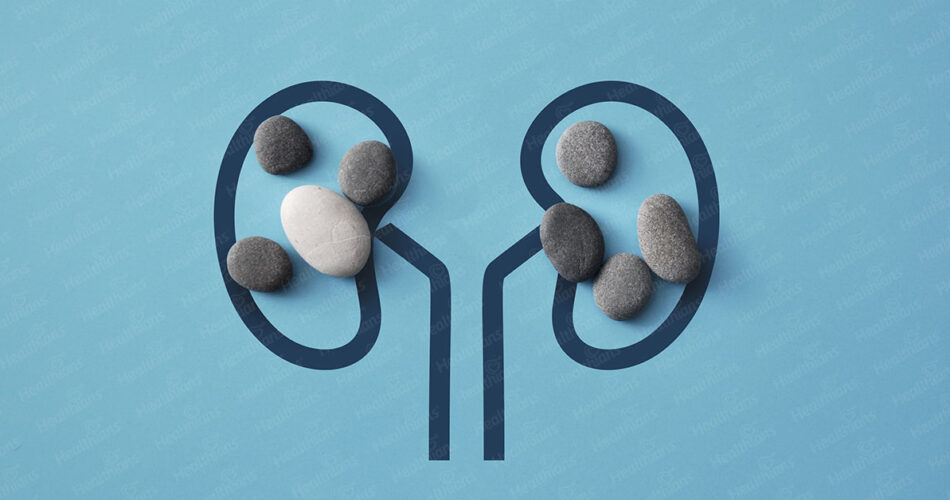Undergoing surgeries can be a frightening experience for most people. It’s not just a scary procedure for the individual and their loved ones, but for our bodies as well. Our bodies go through a drastic change during and after surgeries. This is why it is important to take the right steps to ensure your body gets back to how it used to be and you remain in the best of your health.
Not all surgeries are complex and serious, some are just minor procedures. But they still require a little tending to enhance your well-being and speed up recovery. One such surgery is a kidney stone surgery.
Kidney stones surgeries are performed to remove stones from the kidneys. The surgery involves a surgeon either physically removing a kidney stone in pieces or whole. Kidney stones are formed when calcium, uric acid and oxalate accumulate to form masses and eventually stone-like structures.
Some symptoms of kidney stones include severe pain in your back or side, vomiting, a burning feeling when you urinate and urine that looks cloudy.
Consider this post as the right place to be because we will give you all the tips you need to speed up recovery after kidney stone surgery.
Give rest a priority and reduce your activity level
Your body isn’t vocal, but what it needs the most after a kidney stone surgery is rest. So, give yourself plenty of rest in the first week. Post that, you may begin to indulge yourself in physical activities. However, refrain from strenuous activities for at least 2 months after the surgery. This may include a workout routine, lifting heavy objects and climbing the stairs. If you used to follow an exercise regime, don’t start yet. Start with short walks if you have to get moving.
Give priority to nutrition
It is a no-brainer that your body requires nutrition to heal. So, it’s essential that you supplement your body with the right nutrition.. You may as well avoid certain food items that may cause your body inconvenience and slow down your recovery.
Here is what your diet should focus on:
- Consume foods that are rich in fibre as they promote bowel movement. Add whole-grain bread and beans to your diet.
- Increase your intake of citrus fruits as they are light and help in recovery
- Increase your calcium and vitamin D intake. Milk products are excellent sources of calcium.
- Eat moderate protein. Refrain from consuming foods high in protein
What you should avoid:
- Reduce consumption of animal protein. High-protein diets may cause the kidneys to work harder to remove urea, affecting their recovery.
- Reduce your sodium intake. High sodium levels in the body can promote calcium buildup in urine.
- Avoid foods rich in oxalate as they can increase the chances of formation of stones and may slow down your recovery.. These include spinach, berries, chocolate, nuts, beets, and tea.
Don’t miss doctor appointments
Doctor’s appointments don’t end with the surgery. There are several follow-up appointments that you would have to make time for. You may be asked to undergo an imaging test to check if there are any fragments of stones present in the kidneys.
Upon the analysis, your doctor will devise a treatment plan to ensure you lead a healthy lifestyle and make sure the stones don’t form again.
Pain management
Days after the surgery can be painful, especially when you are urinating. For the same, your doctor may advise some painkillers. You can also try certain other remedies such as a warm bath to ease the pain.
Getting back to work:
It’s a no-brainer that you would want to get back to work after your surgery. You may do the same after taking adequate rest. The rest and recovery windows depend on the type of surgery you had.
For shock wave lithotripsy and percutaneous nephrolithotripsy, you will probably require a week off work at least. For open surgery, you may count on at least 3 weeks or more off work.
Closing thoughts
Recovering from kidney stone surgery is a multi-faceted journey that requires a combination of dietary adjustments and lifestyle changes. By following the advice outlined in this article, individuals can enhance their recovery process and reduce the risk of future kidney stone formation. It’s important to remember that each person’s experience may vary, so consulting with a healthcare professional for personalised guidance is essential. With a commitment to a healthy diet, proper hydration, and positive lifestyle modifications, individuals can pave the way for a smoother and more comfortable recovery, ultimately leading to improved kidney health and overall well-being.




